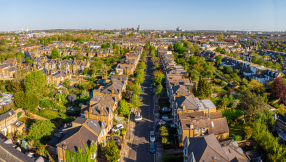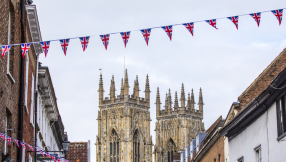Fresh Concerns over Human-Animal Hybrid Embryos
The HFEA said that the inter-species hybrid would be made by injecting human DNA into an animal egg cell to create a "cytoplasmic" embryo for the purposes of research into illnesses such as Parkinson's, Motor Neurone Disease and Alzheimer's. The resulting embryo would be 99.9 per cent human and 0.1 per cent animal.
Ahead of the HFEA's decision yesterday, the convener of the Church of Scotland's Church and Society Council wrote to Alan Johnson MP, Secretary of State for Health, urging the Government to "pay proper regard to the ethical dimensions of these scientific developments".
The Church of Scotland said it was particularly concerned that the HFEA announcement could preempt existing legislation in this area, specifically the draft Human Tissue and Embryos Bill.
In May of this year, the Kirk's General Assembly took the decision to oppose parthenogenetic human embryos, animal-human hybrids/chimeric embryos or human embryos that have been deliberately made non-viable.
In her letter, Morag Mylne informed the Secretary of State that "the General Assembly took this position because although only 1% of animal material is involved, the cross-species admixture of reproductive cells poses significant ethical concerns.
"Human embryos have a moral status ethically and in law. To create hybrid embryonic entities, including hybrid cloned embryos of mixed human-nonhuman status, is a line that we believe should not be crossed," she wrote.
The Lawyers' Christian Fellowship (LCF) criticised the HFEA for deciding it could grant a licence to researchers wanting to create animal-human hybrids when a parliamentary debate and vote have still not taken place.
The HFEA's decision comes only weeks after the Joint Committee considering the draft Human Tissue and Embryo Bill recommended that a free vote be held on the issue in both Houses of Parliament.
The LCF said there were concerns that an unelected body like the HFEA did not have the legal right to decide whether it could grant such licences.
"In making this decision the HFEA have completely usurped the democratic process," said Andrea Minichiello Williams, Public Policy Director at the LCF. She said that the HFEA's decision was "a shocking abuse of power and should be of great concern to a society that believes in democracy protecting the rights of the people".
"The issue to be considered now is whether the HFEA have acted outside their legal remit in making their decision, and what action can be taken to ensure the democratic process is not abused in this way," she continued.
"These decisions go to the very root of what it means to be human, and society needs to think very carefully about allowing decisions of this magnitude to take place without proper scrutiny and accountability."
The HFEA has received two applications for licences to create human-animal hybrids, but is not expected to consider them until November.













